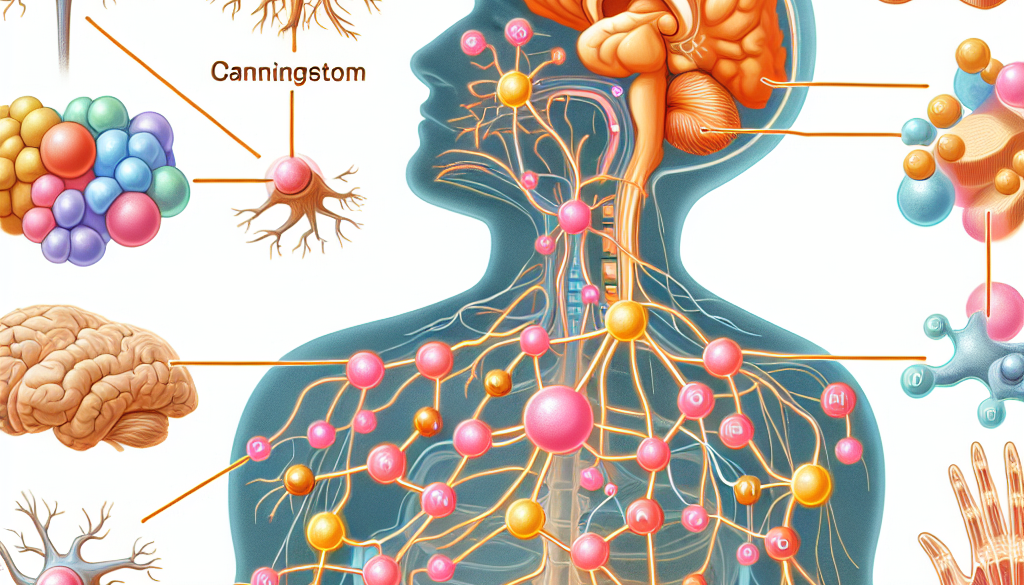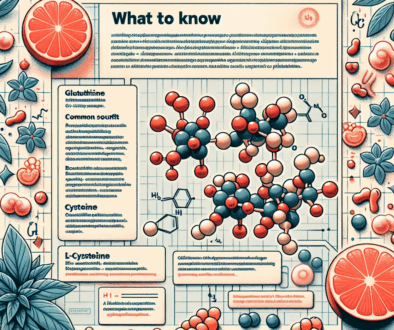Gamma Aminobutyric Acid Effects on Body
-
Table of Contents
- Gamma Aminobutyric Acid: Exploring Its Impact on the Human Body
- Understanding Gamma Aminobutyric Acid (GABA)
- The Calming Effects of GABA
- GABA’s Role in Muscle Tone and Control
- GABA and Its Cognitive Functions
- GABA’s Influence on Mood and Mental Health
- Case Studies and Statistics
- Supplementation and Dietary Sources of GABA
- Conclusion: Key Takeaways on GABA’s Effects
- Enhance Your Health with ETprotein’s High-Quality Protein Products
Gamma Aminobutyric Acid: Exploring Its Impact on the Human Body

Gamma Aminobutyric Acid (GABA) is a naturally occurring neurotransmitter that plays a crucial role in regulating many physiological and psychological processes in the human body. Its effects range from promoting relaxation to influencing muscle tone, and it is a key player in the central nervous system. This article delves into the multifaceted effects of GABA on the body, supported by scientific research, examples, and statistics.
Understanding Gamma Aminobutyric Acid (GABA)
GABA is an inhibitory neurotransmitter, meaning it reduces the activity of neurons in the brain and central nervous system. It is synthesized from glutamate, another neurotransmitter, through the action of the enzyme glutamic acid decarboxylase (GAD). GABA’s primary function is to prevent over-excitation of the nervous system, which can lead to restlessness, irritability, and disorders such as epilepsy.
The Calming Effects of GABA
One of the most well-known effects of GABA is its ability to induce calmness and reduce anxiety. GABA achieves this by binding to GABA receptors in the brain, particularly the GABA-A receptor, which opens chloride channels and hyperpolarizes the neuron, making it less likely to fire. This action is the basis for the calming effects of many anti-anxiety medications and sedatives, which often enhance GABA’s natural inhibitory effects.
- Reduction in Anxiety: Clinical studies have shown that increased GABA levels in the brain can lead to a decrease in anxiety and stress-related symptoms.
- Sleep Improvement: GABA also plays a role in sleep regulation. By inhibiting neural activity, it can help induce sleep and improve sleep quality.
GABA’s Role in Muscle Tone and Control
GABA not only affects the brain but also influences muscle tone and control. It is involved in the regulation of muscle tension and can prevent muscles from being overly contracted. This is particularly important in conditions such as spasticity, where GABAergic drugs are used to alleviate muscle stiffness and spasms.
- Spasticity Management: Medications that mimic GABA’s effects are often prescribed to manage spasticity in conditions like multiple sclerosis and cerebral palsy.
- Exercise Recovery: Some research suggests that GABA supplementation may aid in muscle recovery post-exercise, although more studies are needed to confirm this effect.
GABA and Its Cognitive Functions
While GABA is primarily known for its inhibitory functions, it also plays a role in cognitive processes such as learning and memory. The balance between excitatory and inhibitory neurotransmitters like glutamate and GABA is essential for proper brain function.
- Learning and Memory: Disruptions in GABA signaling have been linked to cognitive impairments and developmental disorders, highlighting its importance in brain health.
- Mental Focus: Some studies suggest that GABA may enhance mental focus and concentration, although the evidence is not conclusive.
GABA’s Influence on Mood and Mental Health
GABA’s impact on mood and mental health is significant. Abnormal GABA activity is associated with various psychiatric conditions, including depression, anxiety disorders, and schizophrenia.
- Depression: Reduced GABA levels have been observed in individuals with depression, suggesting a potential role for GABAergic drugs in treatment.
- Anxiety Disorders: GABA’s calming effect is the basis for the use of benzodiazepines, a class of drugs that enhance GABA activity, in treating anxiety disorders.
- Schizophrenia: Some antipsychotic drugs have been found to affect GABAergic neurotransmission, indicating its relevance in managing schizophrenia symptoms.
Case Studies and Statistics
Several case studies and research findings underscore the importance of GABA in health and disease. For instance, a study published in the “Journal of Clinical Psychiatry” found that patients with panic disorder had 22% lower GABA levels compared to controls. Another study in “Biological Psychiatry” reported that GABA levels increased by 33% after participants practiced yoga for 60 minutes, suggesting a potential natural way to boost GABA activity.
Supplementation and Dietary Sources of GABA
While the body naturally produces GABA, supplementation and dietary sources can also influence its levels. Foods such as fermented products like kimchi, yogurt, and tempeh contain GABA, as do whole grains, beans, and certain vegetables and fruits. GABA supplements are also available and are often marketed for relaxation and improved sleep.
Conclusion: Key Takeaways on GABA’s Effects
In summary, GABA is a vital neurotransmitter with a wide range of effects on the body. It helps regulate mood, anxiety, muscle tone, and cognitive functions. Abnormalities in GABA signaling can lead to various health issues, making it a target for therapeutic interventions. Understanding GABA’s role in the body can lead to better management of neurological and psychiatric conditions.
Enhance Your Health with ETprotein’s High-Quality Protein Products
If you’re looking to support your overall health and well-being, consider incorporating ETprotein’s high-quality protein products into your diet. Their range of organic bulk vegan proteins can complement your nutritional needs, whether you’re an athlete, health enthusiast, or simply looking to maintain a balanced diet. With non-GMO, allergen-free attributes, and a neutral taste, ETprotein’s offerings are an excellent addition to any health-conscious individual’s regimen.
About ETprotein:
ETprotein, a reputable protein and L-(+)-Ergothioneine (EGT) Chinese factory manufacturer and supplier, is renowned for producing, stocking, exporting, and delivering the highest quality organic bulk vegan proteins and L-(+)-Ergothioneine. They include Organic rice protein, clear rice protein, pea protein, clear pea protein, watermelon seed protein, pumpkin seed protein, sunflower seed protein, mung bean protein, peanut protein, and L-(+)-Ergothioneine EGT Pharmaceutical grade, L-(+)-Ergothioneine EGT food grade, L-(+)-Ergothioneine EGT cosmetic grade, L-(+)-Ergothioneine EGT reference grade and L-(+)-Ergothioneine EGT standard. Their offerings, characterized by a neutral taste, non-GMO, allergen-free attributes, with L-(+)-Ergothioneine purity over 98%, 99%, cater to a diverse range of industries. They serve nutraceutical, pharmaceutical, cosmeceutical, veterinary, as well as food and beverage finished product distributors, traders, and manufacturers across Europe, USA, Canada, Australia, Thailand, Japan, Korea, Brazil, and Chile, among others.
ETprotein specialization includes exporting and delivering tailor-made protein powder and finished nutritional supplements. Their extensive product range covers sectors like Food and Beverage, Sports Nutrition, Weight Management, Dietary Supplements, Health and Wellness Products, and Infant Formula, ensuring comprehensive solutions to meet all your protein needs.
As a trusted company by leading global food and beverage brands and Fortune 500 companies, ETprotein reinforces China’s reputation in the global arena. For more information or to sample their products, please contact them and email sales(at)ETprotein.com today.












